Everyone is a traveler now, and tourism has spread to nearly every corner of the planet. Even the most remote places — from the valleys of Central Asia and the shores of Socotra Island to the melting icebergs of Antarctica — now attract visitors.
Nearly 1 billion people have traveled so far this year. 2024 will almost certainly be the busiest year in history.
In a way, this is what we’ve all advocated for: spurring people to travel further, an instinct that is integral to our species and has ensured our survival. The world is our oyster, and the democratization of travel should be a wonderful thing.
But we are exhausting our resources and reaching capacity for everything these days it seems. Each year, more people apply for passports and each year, websites publish inspirational lists of intriguing “off-the-beaten-path” destinations to visit.
Everyone is going everywhere, seemingly all at once.
The cost of overtourism
Overtourism is on the rise everywhere, irreversibly transforming a country’s culture while its infrastructure and services struggle to adapt to the global tourism frenzy. The pushback against tourists is enormous and reported on a daily basis, from the Canary Islands and Venice to Amsterdam and Barcelona.
While tourism plays a crucial role in nearly every country’s economy, it often prioritizes and benefits travelers over its own citizens — the people who live in and contribute to their destinations 365 days a year. More tourism means more economic opportunities, investments and urban upgrades, but this growth often lacks a vision of shared, sustainable development. Instead, it frequently leads to concentrated wealth, diminishing returns and the loss of local culture.
Tourism is a double-edged sword
Tourism has lifted many people out of poverty, but when a destination becomes too popular, the downsides of tourism are hard to ignore. Rising living costs push locals out of city centers as Airbnb rentals take over. Traffic increases, public infrastructure struggles to keep up with demand and even food systems prioritize short-term efficiency over long-term resilience. Resources are stretched while a country’s singular identity — the very thing that makes a destination so intriguing to begin with — is often diluted and distorted.
Globalization, much like overtourism, often leads to the erosion of cultural diversity — from dialects and local traditions to architecture and cuisines. While culture is always evolving, that unique identity that inspires so much pride is often at risk.
In the worst cases, it’s completely wiped out. In the best scenarios, a country’s culture becomes reduced to a caricature — a cartoonish version of itself, neatly packaged and sold for tourists in the form of cheesy trinkets or cookie-cutter experiences that distort their original purpose. Locals often willingly, or at least subconsciously, lean into stereotypes that represent exaggerated, or sanitized, versions of their identity to match the expectations of foreign visitors.
The result is the commodification of culture where profit takes precedence over meaningful exchange.
It’s something I’ve observed firsthand since arriving in Rome 15 years ago (where tourism has increased nearly 300% since 2010) and something I keep experiencing in my travels. The authenticity of destinations is slipping away and with it, that irreplaceable sense of place that gives destinations their soul.
It may be easier than ever to travel, but it has never been harder to discover a place that feels truly and unapologetically itself.
Stymying the spread of overtourism feels insurmountable, but I don’t only want to express complaints and criticisms without offering some kind of solution — especially when it comes to an industry in which I feel responsible, even complicit.
Firstly, because I am a tourist who enjoys privileges while exploring the world, and secondly, because I am a travel writer who has spent the past 15 years promoting travel and tourism on social media and publications like Forbes and Time Out.
When I spend hours waiting at passport queues at airports, can’t make reservations at my favorite restaurants and avoid visiting attractions because they will be too crowded.. I wonder if I’ve done any good by promoting places that are now collapsing under the weight of their own success.
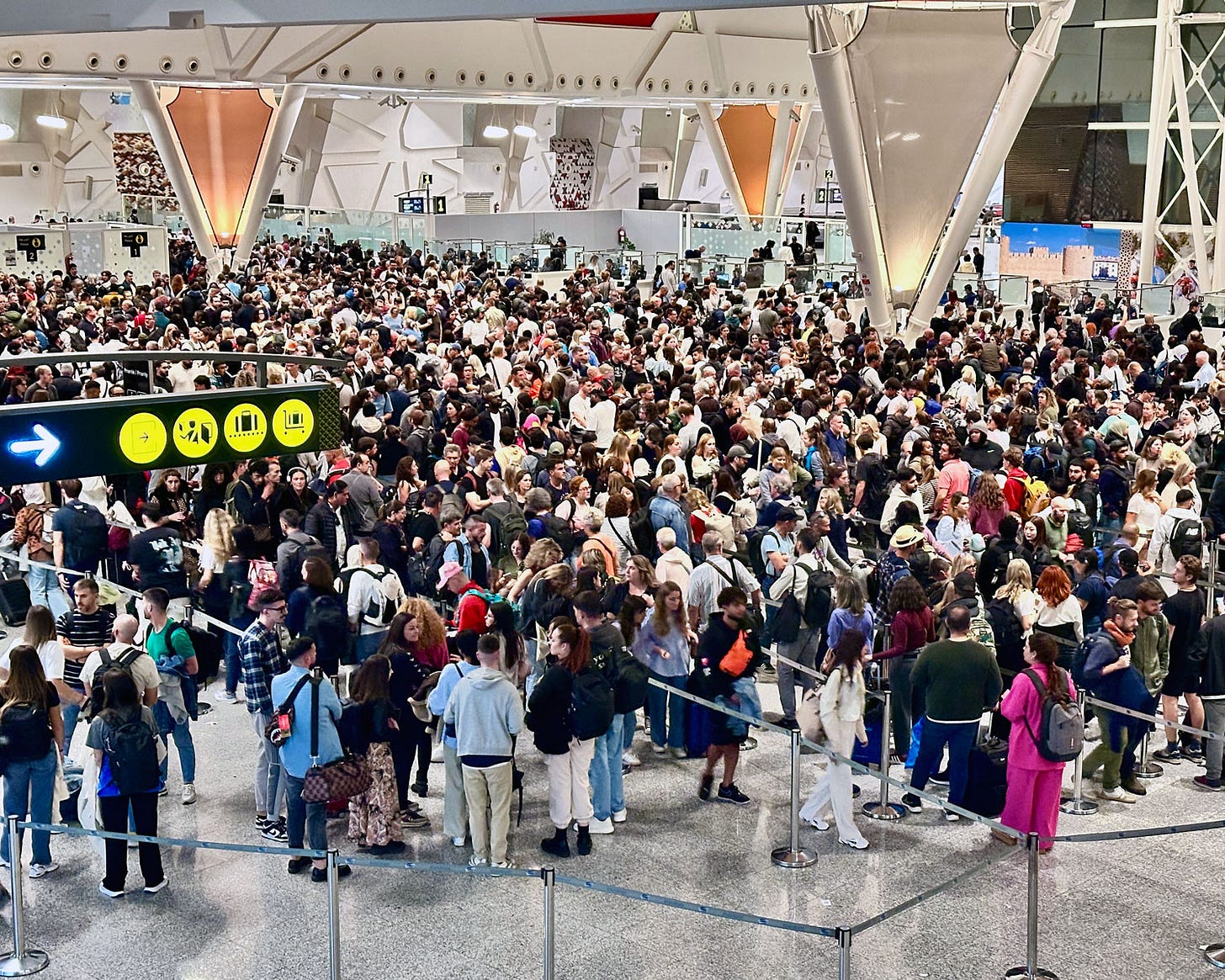
Tourism accounts for approximately 10% of global GDP. For over 50 countries, it contributes at least 20% of their GDP, underscoring its critical role in many economies. Consider just some of the people involved in the global tourism industry: tour guides, airline pilots, wildlife conservationists, urban planners, luxury hotel developers, food vendors, scuba instructors, destination wedding planners, museum curators, hotel housekeepers, travelers themselves… and the list goes on. That is a lot of disparate stakeholders with competing interests.
How on earth can we find consensus among such a varied group with competing bottom lines in a capitalist society that prioritizes profit over all else?
When I feel overwhelmed by the scale of the issue, I try to remind myself that while we may not be able to overhaul the entire system, small steps are better than no steps. If we can conceive of a better world, we can build it. You have to protect what you love. And I know I have a role to play in promoting more responsible tourism. It feels too important not to try.
The fine line that fairly shares benefits for all — traveler and local — is a tenuous one that is being left to its own self-regulation, but the invisible hands we’ve been promised never seem to spread wealth and opportunity equally but rather only benefit the privileged few, ultimately at the cost to everyone. And we’re long overdue for an intervention.
How do we move forward?
Fundamentally, we need much more regulation than we are seeing and it needs to be locally informed by involving the many people it touches. This means limiting the flow of tourists through timed entry or visitor caps, and reconsidering airplane routes to avoid over-burdened hubs. Supporting local businesses and developing community-based tourism councils.
We also need more responsible destination marketing campaigns. We need to prioritize slower travel that helps spread people, and economic benefits more widely, and we need new KPIs that assess other criteria rather than number of visitors and beds sold. We need degrowth strategies that favor quality over quantity and ensure sustainability.
Tourism generates billions annually — $1.7 trillion in 2019 alone. How much of that is reinvested into local infrastructure?
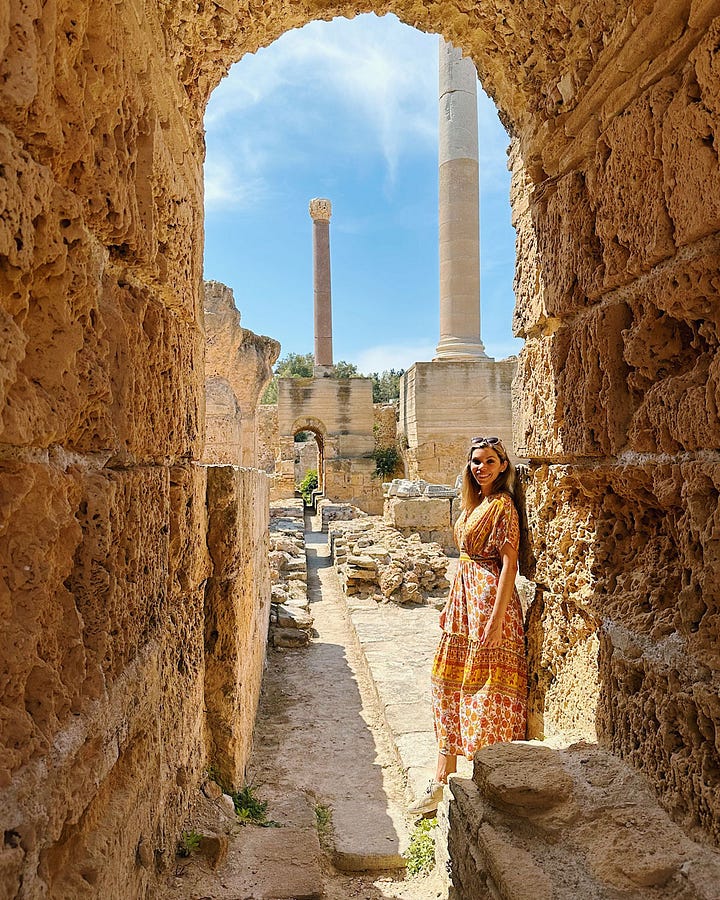
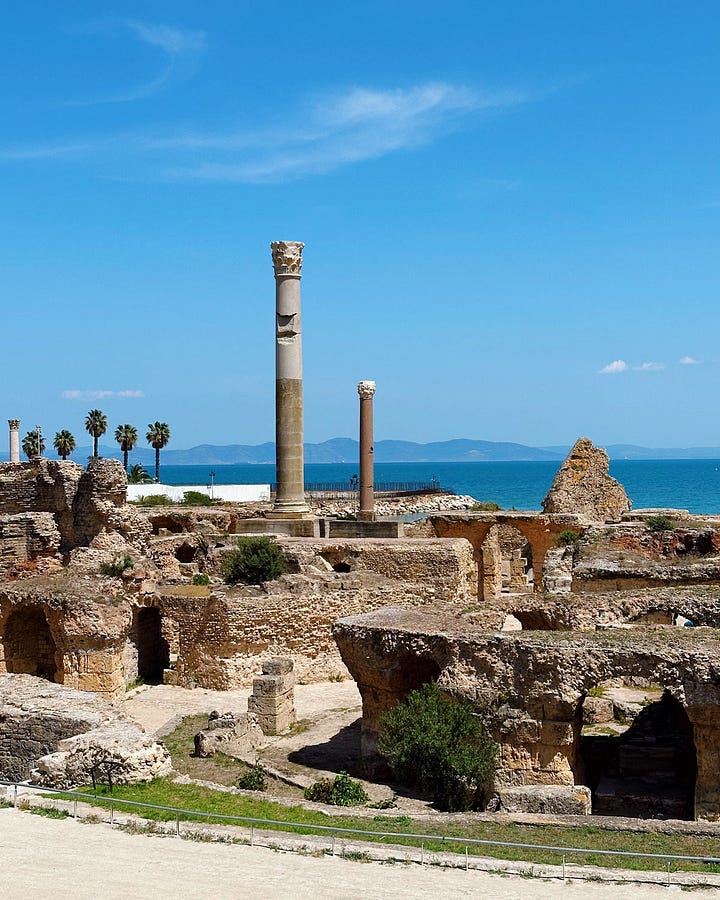
On an individual level, I’d love to see people travel more consciously and with purpose — travel not to tick off bucket-list attractions, create trending Tik Toks or for social cred, but to pick destinations that resonate with personal meaning and that will lead to deeper enrichment. According to a survey by Booking.com, 75% of travelers say they want to travel more sustainably, but only 35% find it easy to make sustainable choices. We need more transparent resources to connect travelers with genuinely responsible businesses and experiences, as greenwashing continues to be a major barrier.
Many of the best examples of responsible tourism are local and piecemeal, so they are hard to discover online and compete with large booking platforms. Although many exist, we need more global platform to connect travelers to genuinely responsible businesses that meet clear sustainability standards, like carbon-neutral certifications or locally driven development. And we need more membership-based networks that pair travelers with vetted, community-driven experiences in exchange for financial contributions that directly benefit the host communities.
What do you think?
If you’re passionate about sustainable tourism too, I’d love to connect with you!
And if you’d like to hear more about possible solutions, successful case studies and responsible tourism associations and platforms in a future post, let me know :)





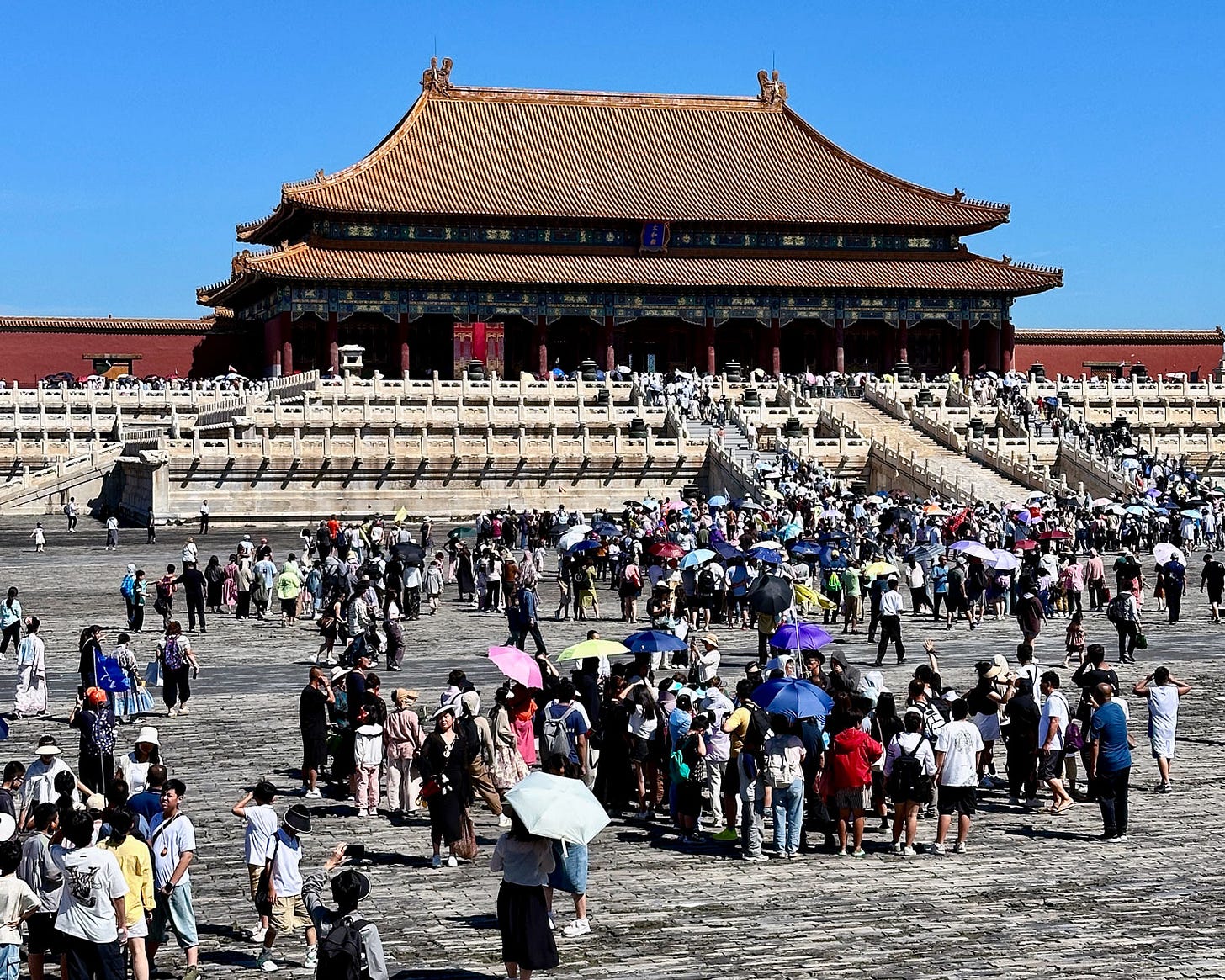

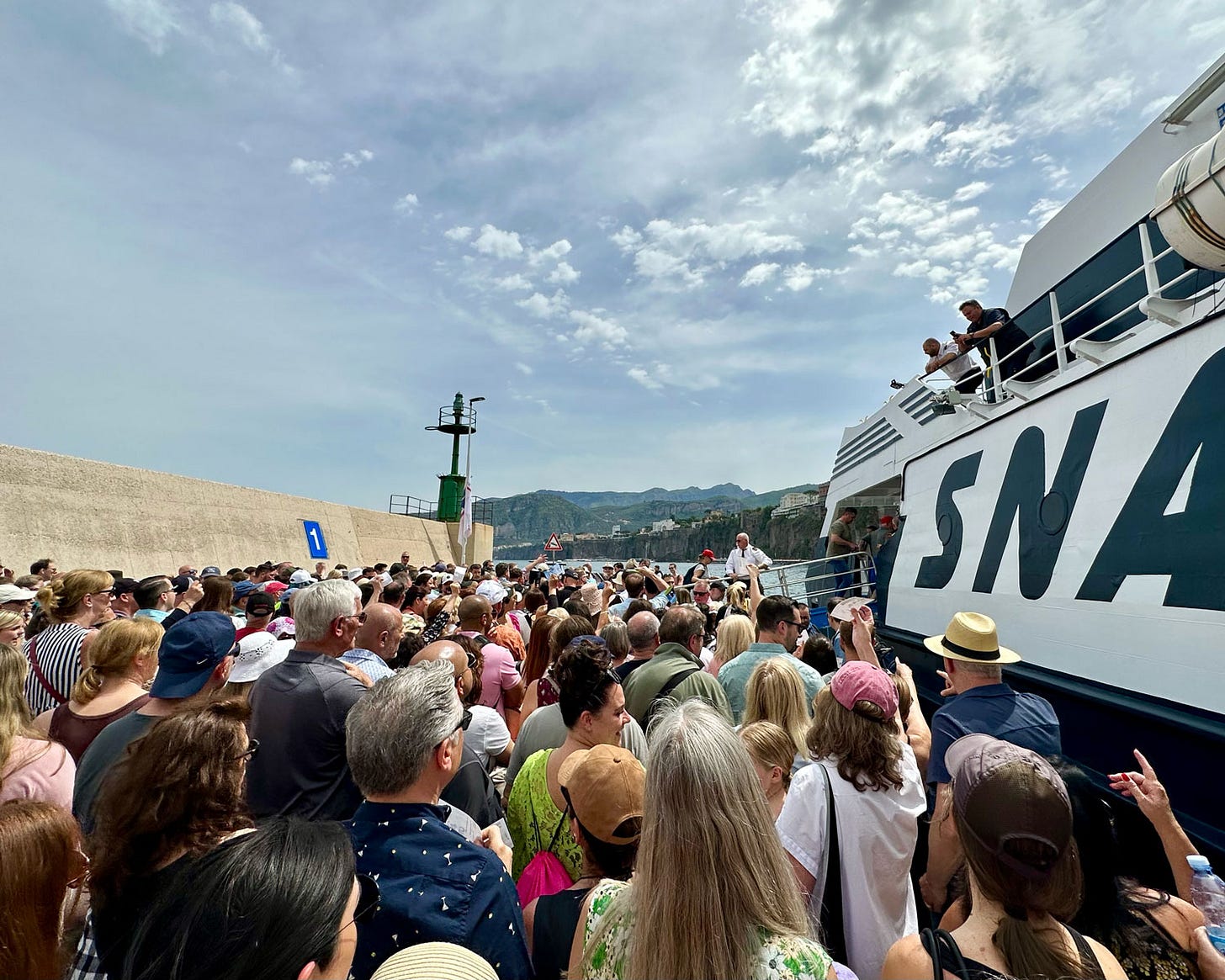
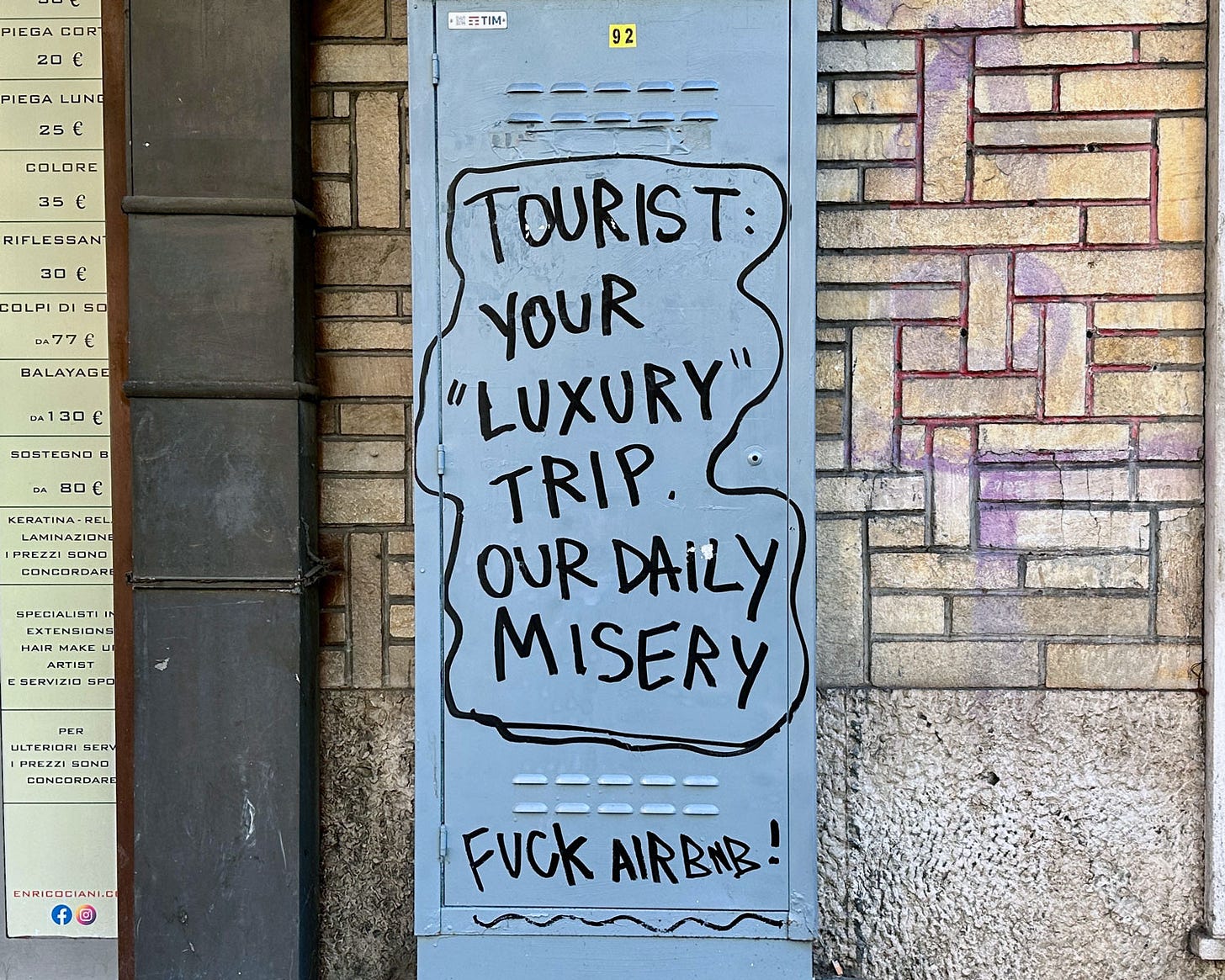
“On an individual level, I’d love to see people travel more consciously and with purpose — travel not to tick off bucket-list attractions, create trending Tik Toks or for social cred, but to pick destinations that resonate with personal meaning and that will lead to deeper enrichment.” - Love this, well said!
It’s simple. The government needs to halve the number of flights arriving in the international airports. Cut the flights, cut the number of tourists.